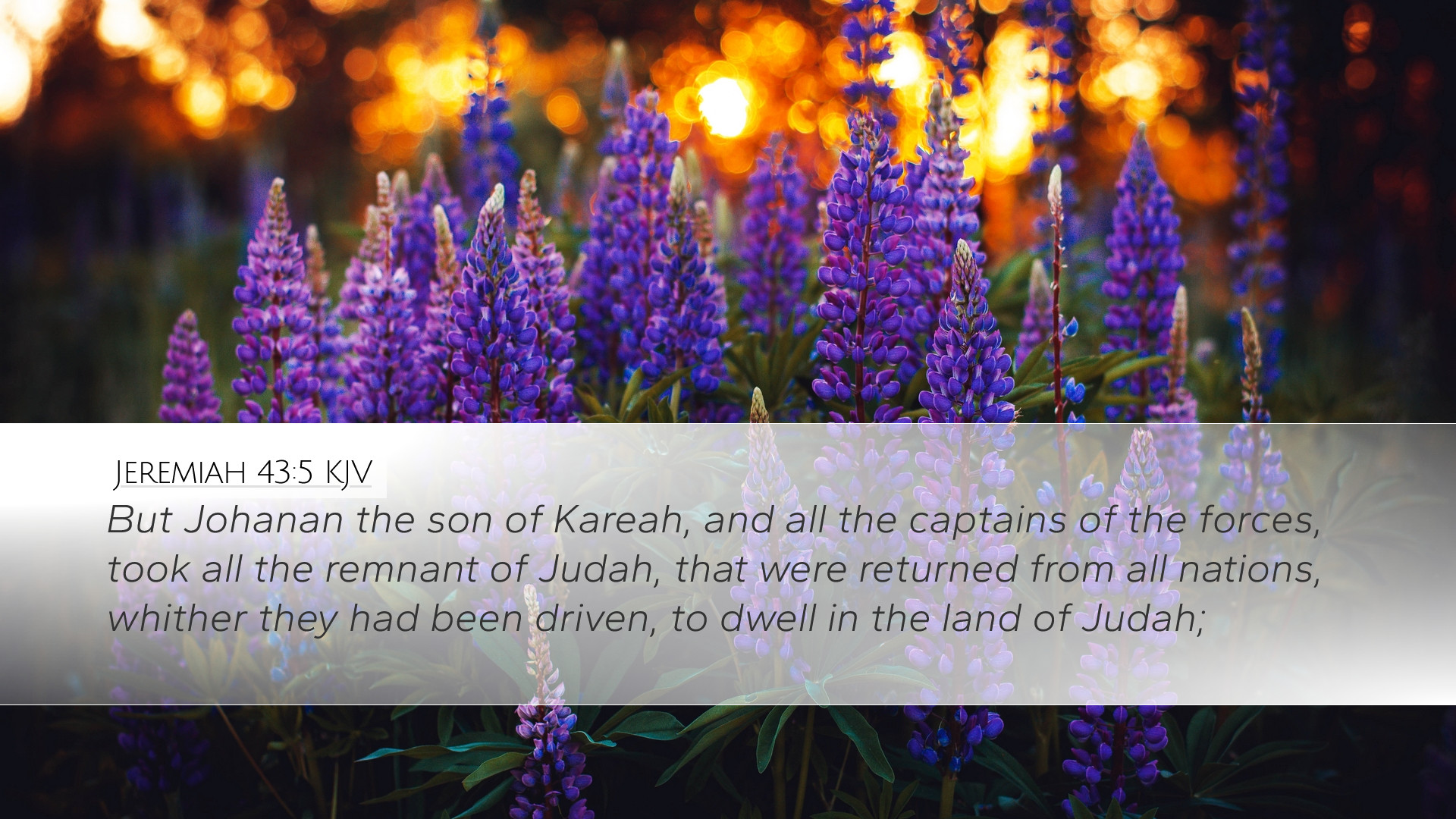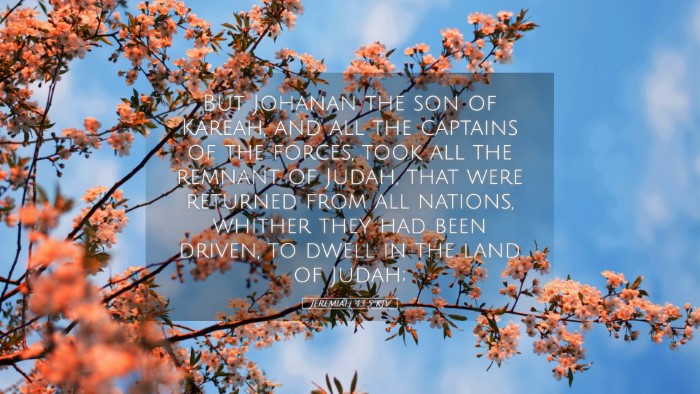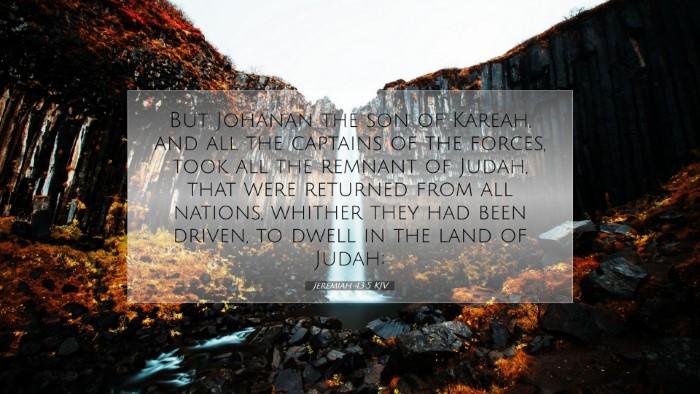Commentary on Jeremiah 43:5
Jeremiah 43:5 states, "But Johanan the son of Kareah, and all the captains of the forces, took all the remnant of Judah, that were returned from all nations whither they had been driven, to dwell in the land of Judah." This verse is significant in the context of the history of Israel, illustrating the complexities of leadership, the faithfulness of God, and the ensuing judgment upon His people. Below is a detailed commentary derived from public domain commentaries stretching across various theological insights.
Contextual Background
The setting of Jeremiah 43:5 occurs after the fall of Jerusalem. The Babylonian captivity led many to flee to Egypt for refuge, and it is from this milieu that Johanan, a military leader among the remnant, emerges. The verse illustrates the movement of leadership among the remnants of Judah, capturing their transition from despair to action.
Insights from Matthew Henry
Matthew Henry notes that this event signifies the remnant of Judah’s acknowledgment of their state after the Babylonian exile. Despite their dire circumstances, they started returning to their homeland, driven by a mixture of hope and desperation. Henry emphasizes:
- Leadership: Johanan’s role showcases a thirst for restoration, albeit under flawed motives, as many would ultimately continue to make decisions based on fear rather than faith.
- Divine Sovereignty: Henry highlights that despite human leadership, God’s plan is being enacted. The remnant's return symbolizes the promise of restoration that God offers, underscoring His enduring covenant with Israel.
- Group Identity: The collective action of the captains reflects an important theme within the scriptures: God's focus on the community and the restoration of a national identity.
Insights from Albert Barnes
Albert Barnes provides additional layers of understanding related to this passage. He points out several key theological implications:
- Prophetic Fulfillment: Barnes emphasizes that this event is not just a spontaneous decision but a fulfillment of God’s promises, aligning with prophetic announcements made concerning the future of Judah.
- Human Agency and Divine Purpose: The actions of Johanan and the leaders illustrate the tension between human free will and God's overarching purposes. While they strive to preserve their lives, they ultimately remain within the parameters of God’s divine council.
- Pastoral Applications: For pastors, Barnes reminds us that such historical narratives encourage congregations to trust in God’s providential care, even when it seems there’s no immediate solution to dire situations.
Insights from Adam Clarke
Adam Clarke’s commentary adds an analytical depth to the circumstances surrounding the passage. Clarke articulately examines:
- Socio-Religious Dynamics: Clarke notes the collective anxiety of the remnant as they return, often leading to decisions steeped in uncertainty about their future in a land that has been devastated by war.
- Encouragement to Seek God: He encourages that during such transitions, the people ought to turn toward the God of their fathers for guidance and reassurance.
- Historical Consequence: The choice of Johanan leading the remnant reveals a continued pattern of reliance on military strength rather than divine guidance, which had principal consequences on the nation's fate in later events.
Theological Reflections
The reflections on Jeremiah 43:5 lead to broader theological implications for individuals and communities alike:
- The Nature of Leadership: True leadership in the Christian context requires guidance from God, rather than solely relying on earthly strategy.
- Community and Identity: The significance of community identity and collective responsibility is emphasized; without a commitment to God and one another, collective wellbeing falters.
- Hope Amidst Despair: This passage serves as a reminder that even in chaotic conditions, God’s hand is present, guiding His people toward eventual restoration.
Conclusion
In sum, Jeremiah 43:5 encapsulates a transitional moment for the remnant of Judah—a poignant reminder of human struggle, leadership failures, and divine faithfulness. The insights drawn from public domain commentaries by Matthew Henry, Albert Barnes, and Adam Clarke enrich the understanding of this scripture, offering vital applications for personal, pastoral, and communal reflection. For pastors, students, theologians, and scholars, Jeremiah 43:5 calls for a deeper examination of how God's sovereign hand operates amidst human decisions and how faith should inform our choices in times of unpredictability.


